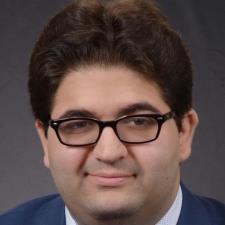Hey, I'm Robert! I received my BS and MS in Mathematical Sciences from CMU (after initially starting as a chemical engineer), and am currently a PhD student at the NYU Courant Institute of Mathematical Sciences, studying mathematics – my specialty is fluid mechanics, studying the properties of differential equations which arise in fluid-dynamical situations. I absolutely love teaching, having TA'd six times as a CMU undergrad in all sorts of courses: introductory proofs (twice), to vector...
Hey, I'm Robert! I received my BS and MS in Mathematical Sciences from CMU (after initially starting as a chemical engineer), and am currently a PhD student at the NYU Courant Institute of Mathematical Sciences, studying mathematics – my specialty is fluid mechanics, studying the properties of differential equations which arise in fluid-dynamical situations. I absolutely love teaching, having TA'd six times as a CMU undergrad in all sorts of courses: introductory proofs (twice), to vector calculus geared towards CS majors, to honors linear algebra, to proofy multivariable calculus, to honors real analysis, putting up to 20 hours a week into optimally teaching discussion sections, writing practice exams, and grading exercises. From this experience, I’ve learned a great deal about what works for students learning difficult, abstract concepts in mathematics or engineering.
The name of the game is conceptual motivation first; with a strong conceptual foundation, even the most tedious computations in calculus, linear algebra, or ODE can be done swiftly and efficiently with the knowledge that one knows what they are doing. Towards this, I write extremely detailed lesson plans for the courses I tutor, emphasizing large-scale motivation and intuition while still being perfectly rigorous and precise; see my multidimensional calculus notes online for a good example. The notes / lesson plans I make are specially designed with plenty of concrete examples and exercises to reinforce student learning. This all being said, active learning is key to make this work: no class I teach is quiet. Indeed, I encourage students to ask questions whenever possible – I’m always willing to go with the flow and work with parents and students for what they need most.
I ultimately hope to get my students to find both abstract and applied mathematics as engaging as I do! If you have any further questions, feel free to message me. I look forward to hearing from you!

